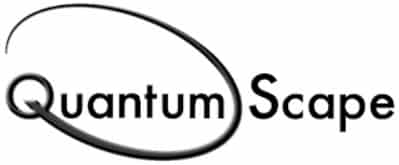7 Startups Looking to Improve Cell Phone Battery Life
Table of contents

While everyone is running around like mad looking for cartoon creatures, their cell phone batteries are starting to take a toll. If we can’t develop cell phones with sufficient battery life that will allow us to run around capturing mythical cartoon creatures for hours on end, then what is this world coming to? The “Pokémon Go Plus Wearable” from Nintendo is supposed to help cut down on the amount of battery that the Pokémon Go app uses up but this device isn’t due out until September. Just how can we improve cell phone battery life so people can spend more time doing something that adds no value whatsoever? The problem is actually much bigger than a Japanese augmented reality game. The truth is that people spend a great deal of time worrying about their cell phone battery life as seen below:
Studies show that the single biggest gripe people have about their smartphones is battery life. The company that can figure out how to extend the life of a cell phone battery by increasing its energy density will reap massive rewards. The problem is that many companies have died trying. Here are some startups that want to increase your cell phone battery life so that you can hunt mythical cartoon characters for hours on end.
StoreDot
Founded in 2012, Israeli startup StoreDot has taken in $66 million from investors that included Samsung to develop their FlashBattery, an instant-charging battery which serves as a highly dense energy sponge, soaking up enough power in just 1 minute to last nearly an entire day. Similar to existing supercapacitor technology, FlashBattery charges faster than any other battery, but stores more power than the traditional Li-Ion battery (LiB). This unique combination of fast charging and high power is made possible through the use of nanotechnology in the form of quantum dots. A few years ago we wrote an article about StoreDot’s quantum dot technology which is worth a read.
SolidEnergy
Founded in 2012, Massachusetts based SolidEnergy has taken in $20.5 million to develop their “anode-free” lithium metal battery which they unveiled in 2014. Their latest round was a Series B in January 2016 which was led by General Motors. Based on research conducted at MIT, their ultra-thin metal anode can double energy density and can be manufactured using existing lithium-ion (Li-ion) manufacturing infrastructure. The Company has also dual-layer electrolyte which combined with their anode, can deliver up to 4X the energy density of today’s best Li-ion batteries. SolidEnergy is said to be building a battery module for Google’s eagerly anticipated Project Ara.
Prieto Battery
Founded in 2009, Colorado based Prieto Battery has taken in $2.65 million in funding so far from investors that include Intel in order to build a new type of lithium ion battery based on nanomaterials. In addition to teaming up with Intel, Prieto also announced a collaboration and investment by Stanley Black & Decker (NYSE: SWK) in May of this year which shows that they’re moving in the right direction towards commercialization. Here’s a diagram which shows how the Prieto Battery technology works:
Prieto expects energy density improvements of up to 60% and is forecasted to hit the market with their novel 3D anode by late 2016.
QuantumScape

Pellion Technologies
Pellion Technologies was founded in 2009 by a team of MIT researchers who want to use magnesium instead of lithium to build batteries. These magnesium-ion batteries are expected to have three times the energy density of lithium batteries and a longer cycle life. Early this year, Motorola announced that they have made an investment in Pellion. Khosla Ventures also lists the Company in their current investment portfolio.
While the 5 companies we have looked at so far are working on improving cell phone battery life by building a better battery, we need a solution NOW so we can get on with catching more Pokemon. Here are a few startups that might help hold us over until higher density Li-ion batteries are developed.
Mobeego
Israeli company Mobeego has developed portable charging solution that you can throw away. These small disposable batteries will provide about 2 hours of talk time or about 4 hours of use time. Pricing for a single battery is anticipated to be $3.99 or $9.99 for a battery and reusable plug. Mobeego launched their battery products in late 2015 and now they are available in 14 countries.
One thing to note here is that an OTC company called Life Clips (OTCMKTS:LCLP) announced a binding agreement to acquire Mobeego in May of this year. As we’ve warned our readers about countless times, you should never invest in OTC companies as the majority will lose all your money. We’ll wait until this acquisition is formally complete and then have a look at the Life Clips financials to see how many batteries Mobeego has been selling.
Doblet
If all else fails, just make external charging batteries available in selected establishments and people will frequent them more because they can’t last 5 minutes if their smartphone dies. A San Francisco startup called Doblet has identified this opportunity and taken in $1.42 million in funding to develop a network of on-demand batteries for charging your phone anywhere. You can either pay $3 for a single charge or get unlimited charges for a $4.99 a month subscription. Doblet is being piloted in the San Francisco area with over 1,000 different locations.
Sign up to our newsletter to get more of our great research delivered straight to your inbox!
Nanalyze Weekly includes useful insights written by our team of underpaid MBAs, research on new disruptive technology stocks flying under the radar, and summaries of our recent research. Always 100% free.





















